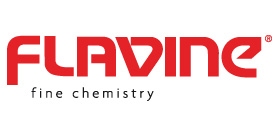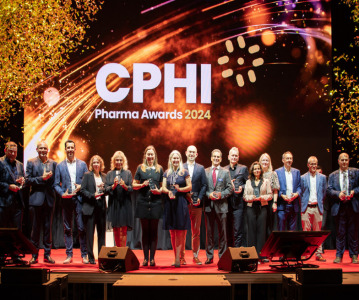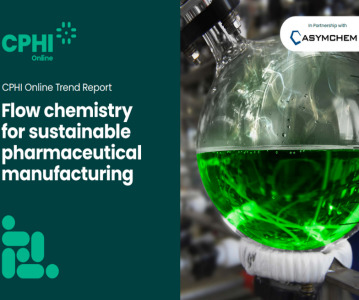A Day in the Life of a Head of Quality Assurance and Regulatory Affairs
.png)
We are continuing to get to know the people working day-to-day behind the pharma companies shaping the industry, the ones who keep the wheels turning and ultimately bring better healthcare to the population; we are talking to the individuals at the heart of pharma.
Taking a look at the integral regulatory side of the pharma industry with Jyotsna Agnihotry, Head of Quality Assurance & Regulatory Affairs at Flavine Europe GMBH, who has over 10 years of experience in quaility assurance in the pharma industry. Agnihotry also discusses how people in the sector can support each other and create a more diverse indsutry.
Please could you outline your background and the career path that has led you to your current position?
Well... having over a decade of experience in the pharmaceutical industry, with a focus on Quality Assurance, Quality Control, Training & Development, Pharmacovigilance processes, and Regulatory Compliance. My career began with a foundational role in quality control, where I honed my skills in ensuring product safety, hands-on experience in various testing, and verification processes and compliance. Over the years, I transitioned into quality assurance, this shift allowed me to take on more significant responsibilities, such as investigating market complaints, supplier/vendor qualification, conducting root-cause analyses, and managing regulatory audits. These experiences were instrumental in deepening my understanding of quality management. Throughout my career, I’ve had the opportunity to work with various international regulatory environments, including EU-GMP, MHRA, USFDA, ENVISA, WHO, CDSCO, MCC, PMDA, and NDA – Uganda. Additionally, I've been involved in numerous customer audits. These experiences have given me a comprehensive understanding of global compliance standards and practices.
Today, I lead the Quality Assurance and Regulatory Affairs department at a pharmaceutical company in Germany, guiding a team to maintain the highest standards of quality and compliance. This journey has been incredibly rewarding, allowing me to contribute significantly to the field of pharmaceuticals while continuously learning and growing.
What do you most like about your role?
A typical daily role at my workplace involves a mix of strategic planning, team meetings, and hands-on problem-solving. I start by reviewing any market complaints and initiating investigations if necessary. This process includes assessing the nature of the complaint, conducting root-cause analysis, and implementing corrective actions to prevent recurrence.
Following this, I dedicate a significant amount of time to documentation. This might not sound glamorous, but it's vital. This involves updating and reviewing Standard Operating Procedures (SOPs) to ensure they are current and compliant with the latest regulatory requirements. Accurate and thorough documentation is crucial for maintaining our quality standards and ensuring regulatory compliance.
Throughout the day, I liaise with various departments to coordinate quality initiatives and address any compliance issues. Collaboration with departments is essential for streamlining processes and ensuring that all aspects of business meet our stringent standards.
Conducting internal audits is another key aspect of my daily routine. These audits help identify any non-compliance issues and areas for improvement within our processes and systems. Preparing for upcoming regulatory inspections is also a critical part of my role, ensuring that we are always ready for inspection by regulatory bodies such as the EU-GMP, MHRA, USFDA, and WHO.
Mentoring and training my team is a continuous activity. I focus on developing their skills and knowledge to ensure we maintain high standards of quality and compliance. This involves providing regular feedback, organising training sessions, and fostering an environment of continuous improvement.
Overall, my day in the office is a balance of strategic oversight and detailed, hands-on management to ensure our products meet the highest standards of quality and safety.
What made you consider getting into your field in the first place?
I chose a career in healthcare or in pharma sector because I want the type of work where I get to make a positive difference to people’s lives, where no two days are ever the same, and where I will be able to develop a diverse range of skills and qualities. Furthermore, the dynamic nature of quality and regulatory sectors, with its constant challenges and the need for meticulous attention to detail, fascinated me. I wanted a career where I could apply my analytical skills to ensure that products are safe and effective for consumers. I speak my mind, with fierce conviction, and along with compassion and empathy.
What are the biggest challenges you face? What issues affect your role?
One of the biggest challenges is keeping up with the ever-evolving regulatory landscape across different countries. Ensuring compliance with various international standards while maintaining efficiency can be demanding. Additionally, managing market complaints and conducting thorough root-cause analyses within tight timelines requires meticulous coordination and prioritisation also when important documents are not legible.
What advice would you give to other people aspiring to your position or getting into this field?
I have always challenged my people to think about the question: “How can we be different?” Focusing on building differentiation thoughtfully is of utmost importance. My advice would be to develop a strong foundation in quality control and assurance principles, stay updated with regulatory changes, and cultivate excellent problem-solving and analytical skills. Building good communication skills and being able to work collaboratively with cross-functional teams is also essential. Never stop learning and be proactive in seeking opportunities to improve processes and systems.
What would you like to see from the industry to better support diverse people in STEM?
I would like to see more initiatives focused on mentorship and career development for underrepresented groups in STEM. Creating inclusive environments where diverse perspectives are valued and providing equitable opportunities for advancement are crucial. The industry should also invest in education and outreach programmes to inspire and support the next generation of diverse STEM professionals.
How can people in your position better support each other?
People in my position can better support each other by fostering a culture of collaboration and knowledge sharing. Networking and participating in industry forums, mentoring junior professionals, and creating platforms for open communication and best practice sharing can help us collectively advance our field.
What do you see as the next big opportunity in your sector?
My personal sense is that the pharmaceutical industry globally is so diverse as well as fragmented. The next big opportunity in the pharmaceutical sector lies in the integration of advanced technologies like artificial intelligence and machine learning to enhance quality assurance processes. These technologies can improve the accuracy and efficiency of inspections, data analysis, and compliance monitoring, ultimately leading to higher standards of product safety and quality along with manufacturing sectors.
Learn more about Flavine Europe by clicking the button below.
Related News
-
News CPHI Pharma Awards 2024: Meet the winners from the CPHI Celebration
This year we had a lot to celebrate, the 35th Anniversary of CPHI, and our esteemed award winners, of which we included two additional categories this year, the Future Leader award, and Woman of the Year award. -
News Women in Pharma: C-Suite Journeys in Leading Diversity
In this CPHI Milan special of our monthly series, we sit down with our panel of C-suite executives speaking on the ‘Leading with Diversity: The CEO Journey’ panel at this year’s show. -
News The BIOSECURE Act: implications for the pharma supply chain
On September 9, 2024, the US House of Representatives voted to pass the bill titled the BIOSECURE Act (the Act), which lists several Chinese companies in the pharmaceutical supply chain. The Act will prohibit American companies from contracting or doin... -
Sponsored Content CPHI Online Trend Report: How can flow chemistry help businesses achieve their sustainability goals?
In our latest CPHI Online Trend Report, we partner with Asymchem to understand the innovative potential of flow chemistry for API manufacturing, especially in regards to meeting sustainability goals. -
News CPHI Milan Speaker Spotlight: CDMO relations with Pharma and Start-Ups
In the run-up to CPHI Milan, we sit down with some of the experts and thought-leaders speaking at this year’s conferences. -
News Women in Pharma: Advocating for trans healthcare in pharma
In our monthly series on women in the pharmaceutical industry, we interview leading experts in the pharmaceutical supply and value chain to discuss the importance of gender diversity in healthcare, the workplace, and beyond. -
News A Day in the Life of a Vice President in R&D & Engineering
In the Day in the Life of Series, we've already had the chance to get to know a range of people in various roles in the pharma industry. In the latest interview we get a glimpse into the R&D side of things from Jennifer Sorrells, Vice Presiden... -
News CPHI Podcast Series: analysing supplier audits with the PSCI
This episode of the CPHI Podcast Series, hosted by Digital Editor Lucy Chard, goes through the results from the recent audits from the PSCI conducted on suppliers across the pharmaceutical industry, looking into ESG outcomes.
Position your company at the heart of the global Pharma industry with a CPHI Online membership
-
Your products and solutions visible to thousands of visitors within the largest Pharma marketplace
-
Generate high-quality, engaged leads for your business, all year round
-
Promote your business as the industry’s thought-leader by hosting your reports, brochures and videos within your profile
-
Your company’s profile boosted at all participating CPHI events
-
An easy-to-use platform with a detailed dashboard showing your leads and performance






.png)

